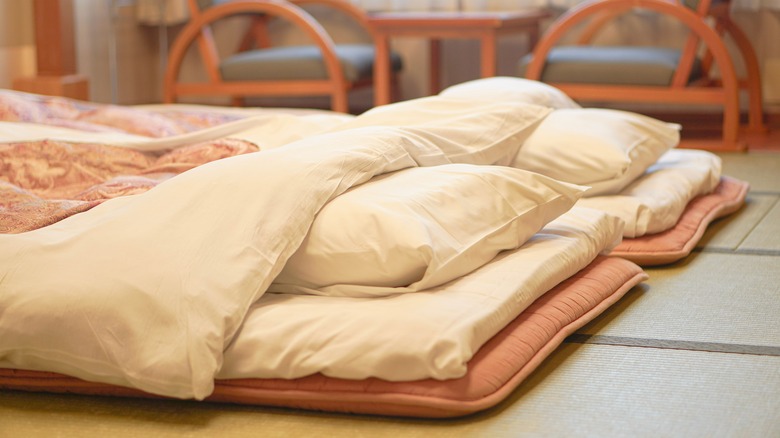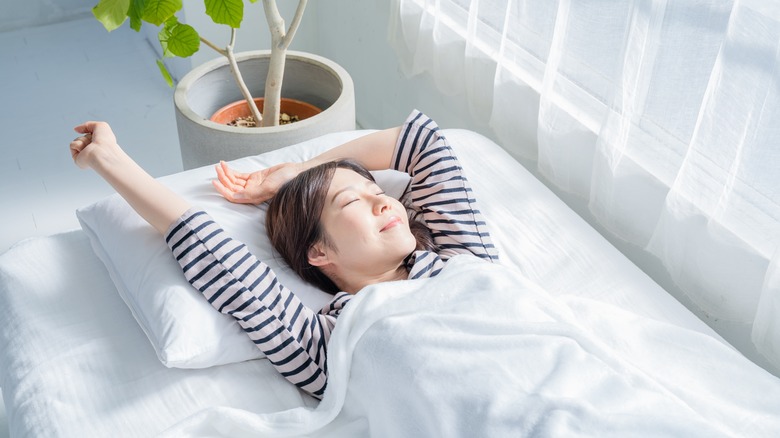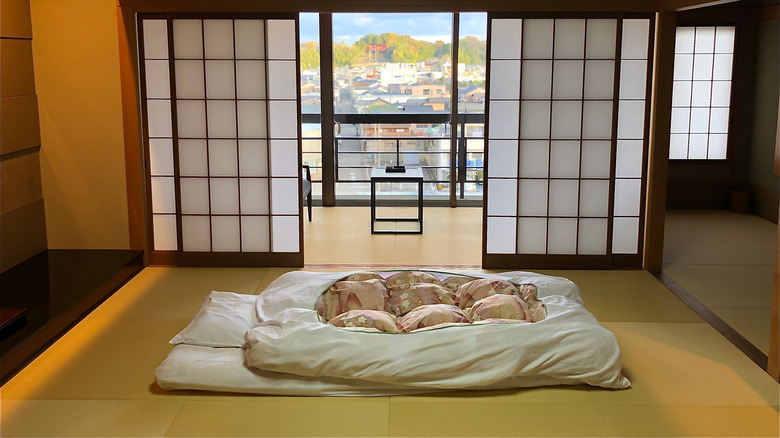Japanese Floor Mattresses Explained (And Which One Is Best For You)
If you feel yourself growing bored of your regular western-style mattress or feel like it isn't offering enough support, a Japanese floor mattress could be the right fit for you. Simply described, a Japanese floor mattress is a floor pad filled with cotton or another similar filling for comfort. They tend to sit on a mat, often made from tatami or wood depending on your preference.
Sometimes, a Japanese mattress is referred to as a futon, but the style is different from western-style futons, which usually have legs and appear more similar to a sofa bed. Another name is shikibuton, which is the Japanese term for this style of mattress. It may appear out of the ordinary if you have never seen or slept on one before, but the design of a Japanese floor mattress could give you the best night's sleep you've had in a while — here's all you need to know about the innovative design so you can decide whether it's right for you.
You could get a better night's sleep when sleeping on a Japanese mattress
The pros of sleeping on a Japanese floor mattress are numerous. Firstly, the firm construction makes them an excellent option for those who sleep on their back. Your spine will be completely aligned the entire night, with no mattress dips to be found — which also improves circulation. This also applies to those who sleep on their stomach, as the firm support will prevent your hips from sagging into the mattress during the night. And if you suffer from poor temperature regulation, this too could be improved by sleeping close to the floor.
In addition to offering solid support, an obvious benefit of this type of mattress is the fact it easily folds up and can be put away when not in use. This not only saves space, but also means they're a great option for rooms that double up, for example an office and a spare room. It additionally means you can bring your mattress pretty much anywhere, though this depends on the size as some are larger than others and are not able to be folded as small. Another major plus of this mattress type is that you won't only save space but money, too. Compared to a standard mattress, a Japanese floor mattress is invariably cheaper — with some costing just under $100.
The bed style isn't all positives
There are some cons, however, to Japanese floor mattresses. The main drawback is something that's also a plus point — its firmness. While some may appreciate a firm mattress, others may find it makes them feel worse. If this is an issue for you, it's best to avoid a wooden base and opt for a tatami base instead. A tatami base will give you an extra layer of padding due to its spongy feel, dispelling some of the discomfort you may feel. As for space, while most mattresses do roll up to be put away, this could also be a downside. At the end of a long day when you just want to sink into sleep, having to roll out your bed could be one step too many for some.
Moreover, part of owning a futon means you'll need to air it outside often, which could be difficult in cold and wet climates. It's also important to keep your sleeping space extremely clean. Being close to the floor, this mattress style will pick up dust far more easily than a mattress which sits on a higher bed frame. Overall, a Japanese floor mattress is a great option for back and stomach sleepers, not to mention the potential financial and space savings — though the firmness and proximity to the floor may not be for everyone.


